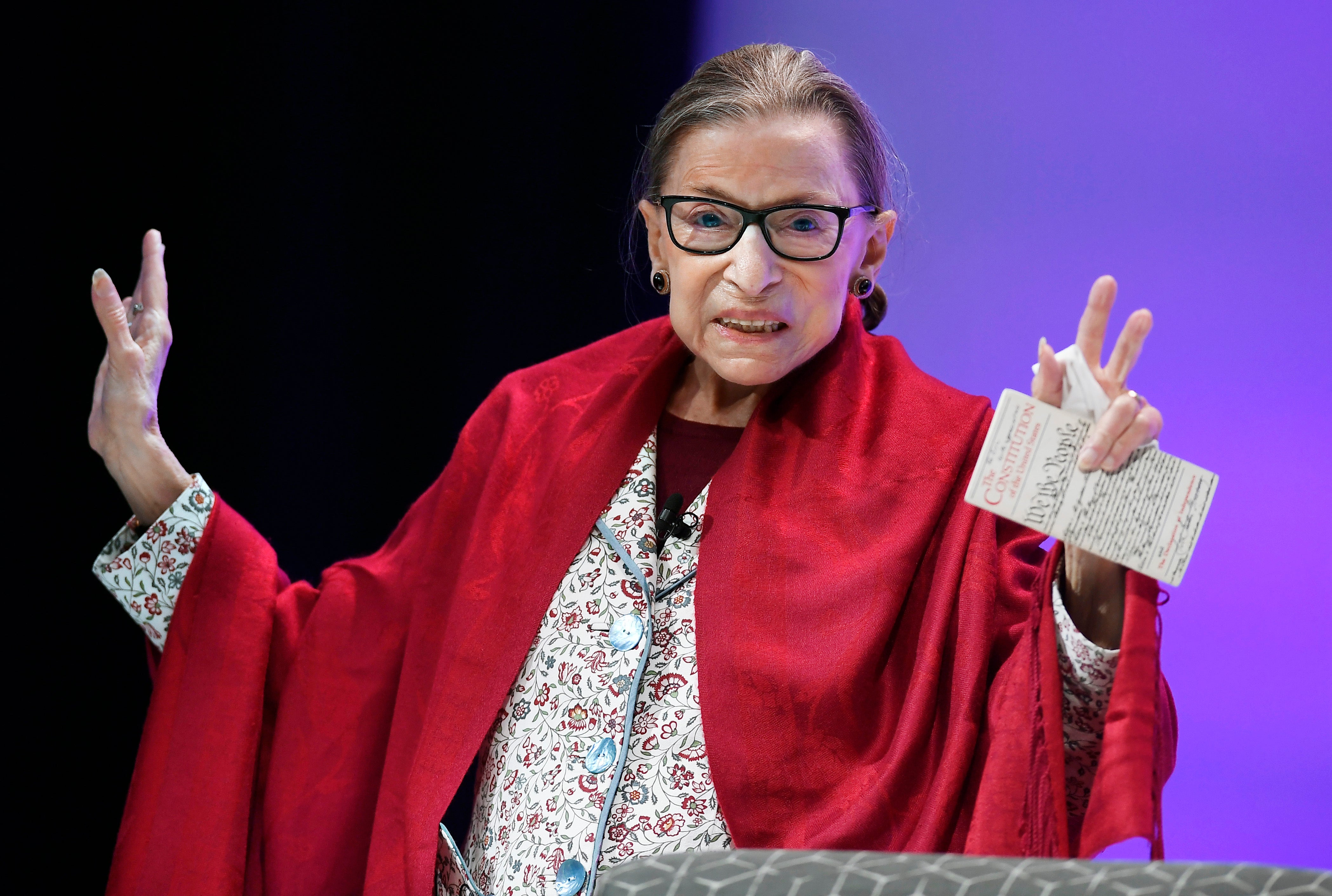Supreme Court remembering Justice Ruth Bader Ginsburg
The late Justice Ruth Bader Ginsburg is being remembered during ceremonies at the Supreme Court

Your support helps us to tell the story
From reproductive rights to climate change to Big Tech, The Independent is on the ground when the story is developing. Whether it's investigating the financials of Elon Musk's pro-Trump PAC or producing our latest documentary, 'The A Word', which shines a light on the American women fighting for reproductive rights, we know how important it is to parse out the facts from the messaging.
At such a critical moment in US history, we need reporters on the ground. Your donation allows us to keep sending journalists to speak to both sides of the story.
The Independent is trusted by Americans across the entire political spectrum. And unlike many other quality news outlets, we choose not to lock Americans out of our reporting and analysis with paywalls. We believe quality journalism should be available to everyone, paid for by those who can afford it.
Your support makes all the difference.Justice Ruth Bader Ginsburg, a champion for women's rights whose death ahead of the 2020 election allowed the Supreme Court to become more conservative, will be remembered during ceremonies Friday at the high court.
Ginsburg, who served as a justice for 27 years and was the Supreme Court's second female member, will be remembered by some of the people who worked for her as law clerks, young lawyers who spend a year at the court working for a justice. The group includes Elizabeth Prelogar, the Biden administration's solicitor general, its top Supreme Court lawyer, as well as several judges and professors.
The ceremonies, technically a meeting of the Supreme Court Bar followed by a special session of the court, are a tradition at the high court following the death of a justice, a tradition dating back to 1822. The court will livestream the meeting on its website beginning at 1:45 p.m. EDT.
Ginsburg's death just over six weeks before the 2020 election was immensely consequential. It allowed then-President Donald Trump to fill the liberal justice's seat on the court with a conservative, Justice Amy Coney Barrett, and gave conservatives a 6-3 majority on the bench. Barrett was among the justices who voted last year to overturn Roe v. Wade and do away with constitutional protections for abortion, protections Ginsburg had backed as a justice.
As an advocate for women's rights before becoming a judge, Ginsburg won five of the six cases she argued before the high court in the 1970s. She was appointed to the Supreme Court by President Bill Clinton in 1993.
Late in life as the court's senior liberal she became something of an icon, particularly to young women, and earned the nickname the “Notorious RBG.” Among the things she was known for was her collection of judicial collars, lace and beaded adornments she would wear over her robe. She was also an avid proponent of exercise and regularly worked out with a personal trainer, who wrote a book about her workout routine that came out in 2017.
Over the years, Ginsburg had several public battles with cancer. She died at age 87 of complications from metastatic pancreatic cancer. After her death, she made history as the first woman to lie in state at the U.S. Capitol.
Ginsburg is buried at Arlington National Cemetery in Virginia, just over the Potomac River from Washington.